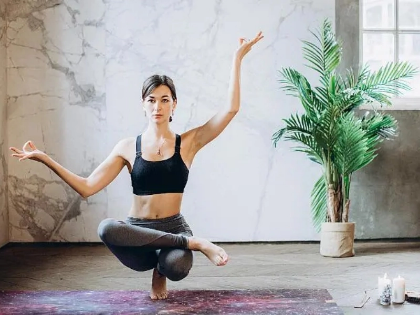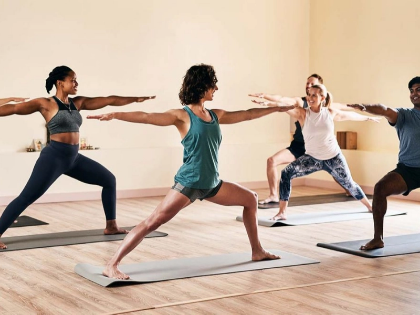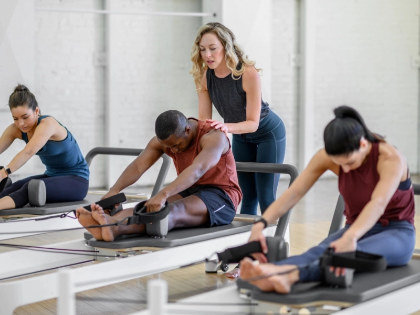Overcoming Anxiety at the Gym: Strategies for Uneasy Beginners
Though it can take many various forms, anticipating your needs might help you overcome gym fear. Arrive with a friend who is already familiar with the gym, and before you go, look into the facilities, gear, and classes. Make use of exposure treatment techniques, stepping up your gym visits gradually until they become a habit.
1. Recognise your limitations

2. Remain concentrated.
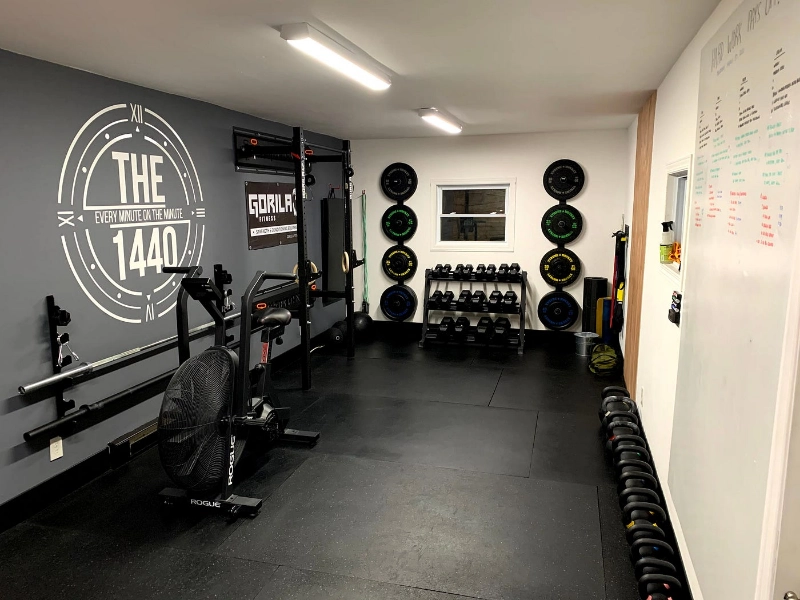 Exercise does, in fact, reduce anxiety, and the benefits increase with regularity. However, many people experience anxiety and nervousness when they visit the gym for the first time, particularly if they are not used to working out in a group.
People who struggle with gym anxiety may be afraid of other members making fun of them or that they won't know how to operate the equipment properly. These anxieties are frequently the result of insecurity rooted in societal messaging around fitness and body appearance.
The first step to overcoming these early emotions is acknowledging them. It's all about planning ahead after that. Having a strategy when you arrive at the gym, even if it's only to take a ten-minute walk to orient yourself, can help you feel prepared and in control, turning your first fears into milestones on your path to wellness.
Exercise does, in fact, reduce anxiety, and the benefits increase with regularity. However, many people experience anxiety and nervousness when they visit the gym for the first time, particularly if they are not used to working out in a group.
People who struggle with gym anxiety may be afraid of other members making fun of them or that they won't know how to operate the equipment properly. These anxieties are frequently the result of insecurity rooted in societal messaging around fitness and body appearance.
The first step to overcoming these early emotions is acknowledging them. It's all about planning ahead after that. Having a strategy when you arrive at the gym, even if it's only to take a ten-minute walk to orient yourself, can help you feel prepared and in control, turning your first fears into milestones on your path to wellness.
3. Avoid Going Overboard
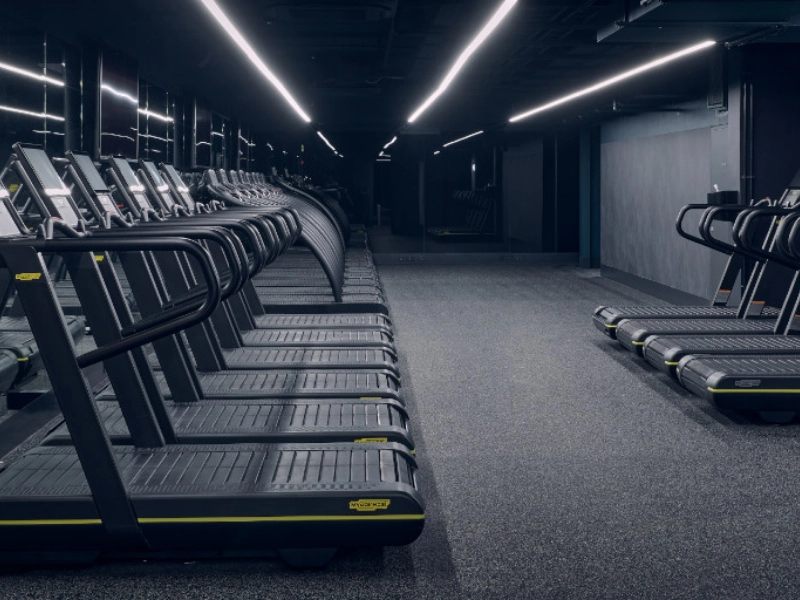 Being aware of what to expect will assist, regardless of whether you're experiencing gym anxiety or are afraid to enter a new environment. Before your first visit, do some internet research on the location, classes, equipment, and hours of a gym.
In fitness environments, some people could feel insecure about their skills, particularly those who already battle body shame or problems with self-image. If this is a problem for you, you might find it easier to tolerate if you frame coming to the gym as a self-care ritual.
It can also be beneficial to keep in mind that everyone, even those who appear to know their way around every piece of equipment and work out like pros, had their first gym experience. Realising that your anxiety is normal can be rather relieving.
Being aware of what to expect will assist, regardless of whether you're experiencing gym anxiety or are afraid to enter a new environment. Before your first visit, do some internet research on the location, classes, equipment, and hours of a gym.
In fitness environments, some people could feel insecure about their skills, particularly those who already battle body shame or problems with self-image. If this is a problem for you, you might find it easier to tolerate if you frame coming to the gym as a self-care ritual.
It can also be beneficial to keep in mind that everyone, even those who appear to know their way around every piece of equipment and work out like pros, had their first gym experience. Realising that your anxiety is normal can be rather relieving.
4. Remain upbeat.
 It could be beneficial to listen to energising and concentrated music or podcasts if you have anxiety when working out. In addition to blocking out other people's sounds and diverting your attention from their nonverbal cues, this can help you feel more assured and in command of your environment.
Lastly, when you're exercising, try to speak to yourself positively. According to studies, using a mantra or positive affirmations can significantly boost your self-esteem and help you get over your nervousness.
If you still feel uneasy or overwhelmed at the gym, think about signing up for a class to become more accustomed to the tools and routines or going during off-peak hours when it's less busy. You'll see benefits if you persevere; it takes time to adjust to new situations and feel at ease.
It could be beneficial to listen to energising and concentrated music or podcasts if you have anxiety when working out. In addition to blocking out other people's sounds and diverting your attention from their nonverbal cues, this can help you feel more assured and in command of your environment.
Lastly, when you're exercising, try to speak to yourself positively. According to studies, using a mantra or positive affirmations can significantly boost your self-esteem and help you get over your nervousness.
If you still feel uneasy or overwhelmed at the gym, think about signing up for a class to become more accustomed to the tools and routines or going during off-peak hours when it's less busy. You'll see benefits if you persevere; it takes time to adjust to new situations and feel at ease.
5. Pay Attention to Your Body
 Beginners may find the gym daunting, but fitness enthusiasts and die-hard weightlifters may find it a safe place. Gym anxiety may be a major barrier to working out, whether it's from the busy, noisy atmosphere or the perception that everyone else is an expert exerciser.
You can lessen your anxiety by carefully researching the routine you have chosen before going to the gym. To help you tune out of other people, you can also listen to lively music or a podcast.
Bringing a friend or finding a workout partner who can support you and function as your accountability partner are two more strategies to overcome the fear effect. Fitness can become much more enjoyable and productive as a result. Gaining a deeper understanding of your body and learning to recognise its signals of fatigue, hunger, stress, or illness can also help you prevent overtraining.
Beginners may find the gym daunting, but fitness enthusiasts and die-hard weightlifters may find it a safe place. Gym anxiety may be a major barrier to working out, whether it's from the busy, noisy atmosphere or the perception that everyone else is an expert exerciser.
You can lessen your anxiety by carefully researching the routine you have chosen before going to the gym. To help you tune out of other people, you can also listen to lively music or a podcast.
Bringing a friend or finding a workout partner who can support you and function as your accountability partner are two more strategies to overcome the fear effect. Fitness can become much more enjoyable and productive as a result. Gaining a deeper understanding of your body and learning to recognise its signals of fatigue, hunger, stress, or illness can also help you prevent overtraining.





